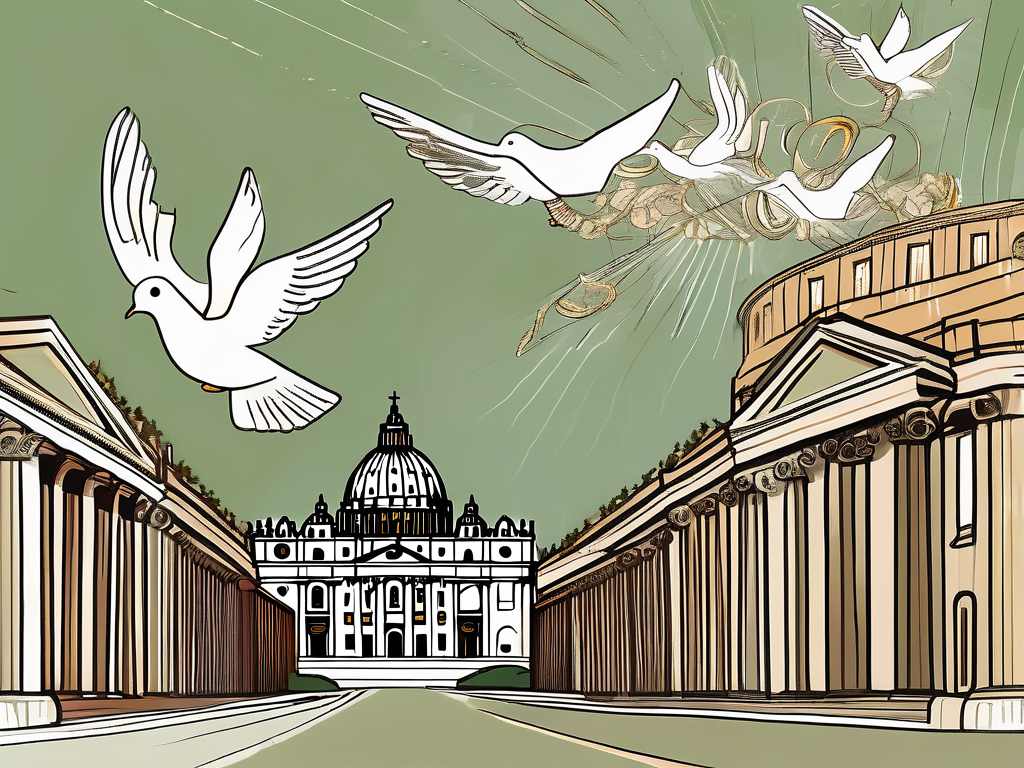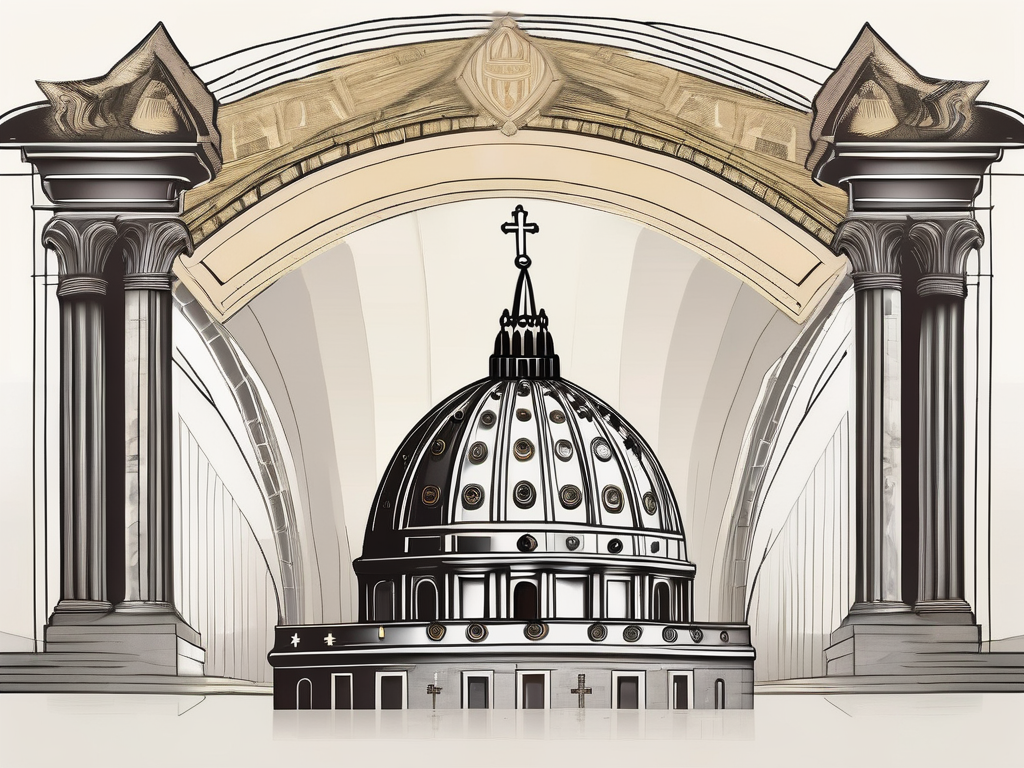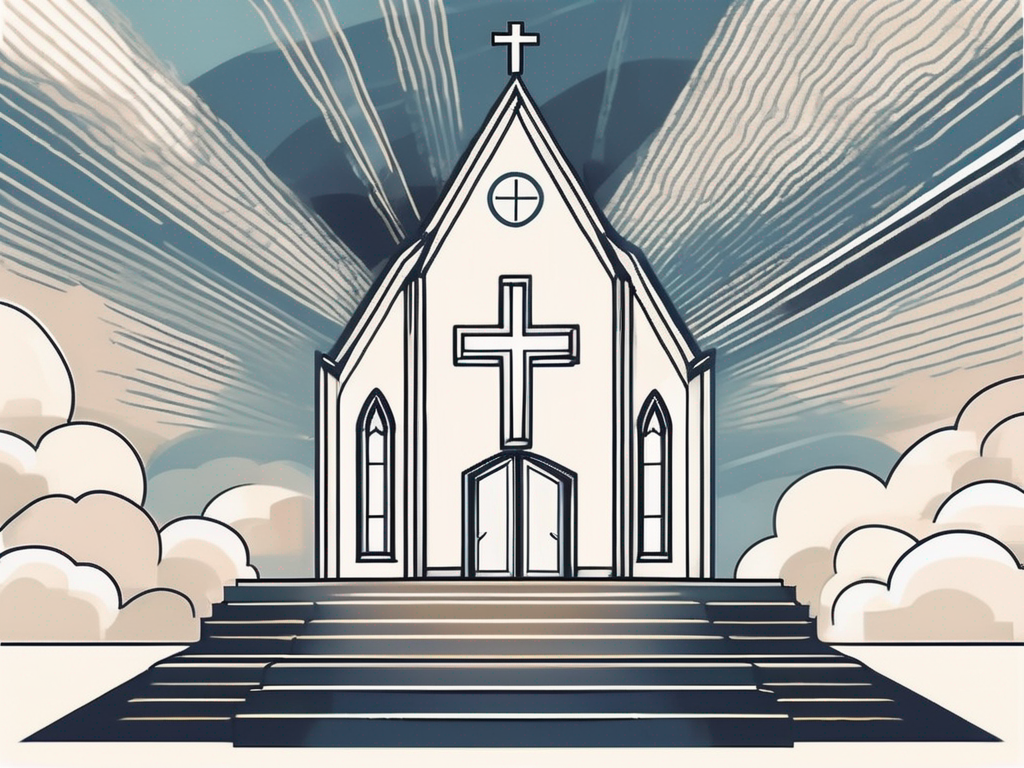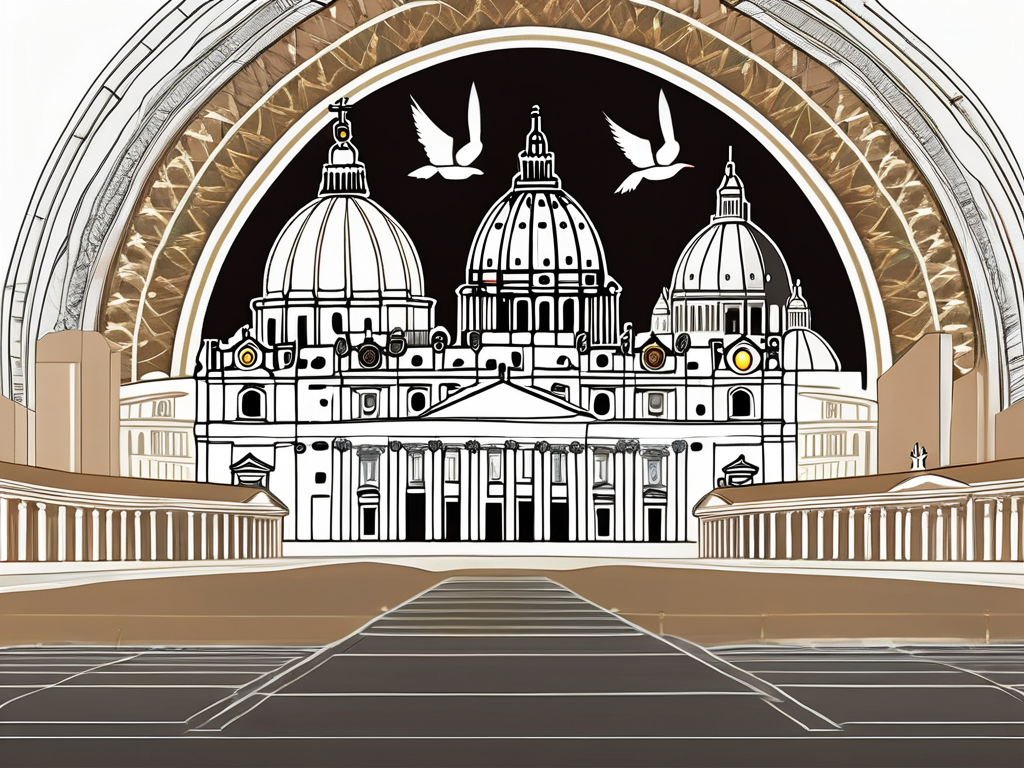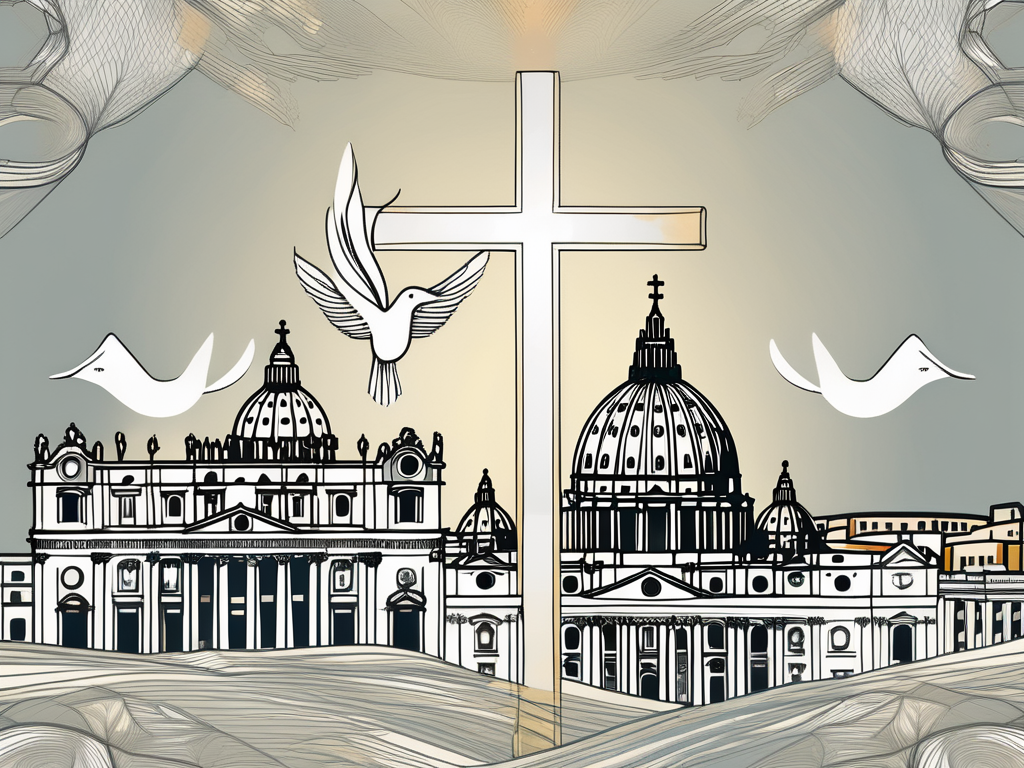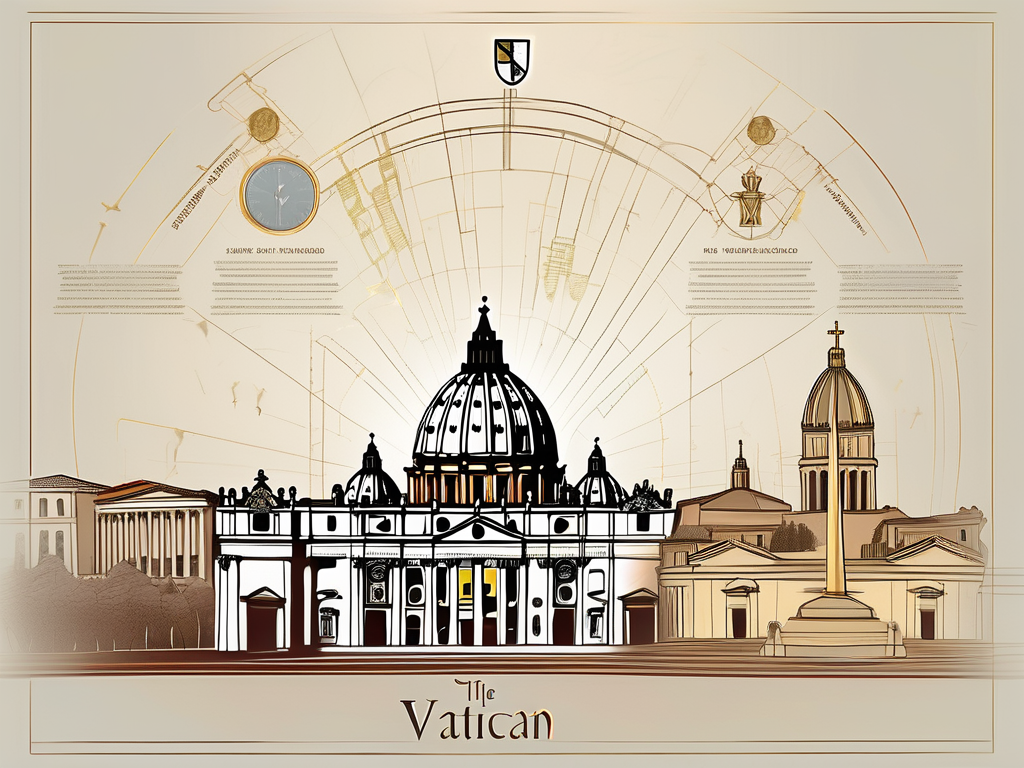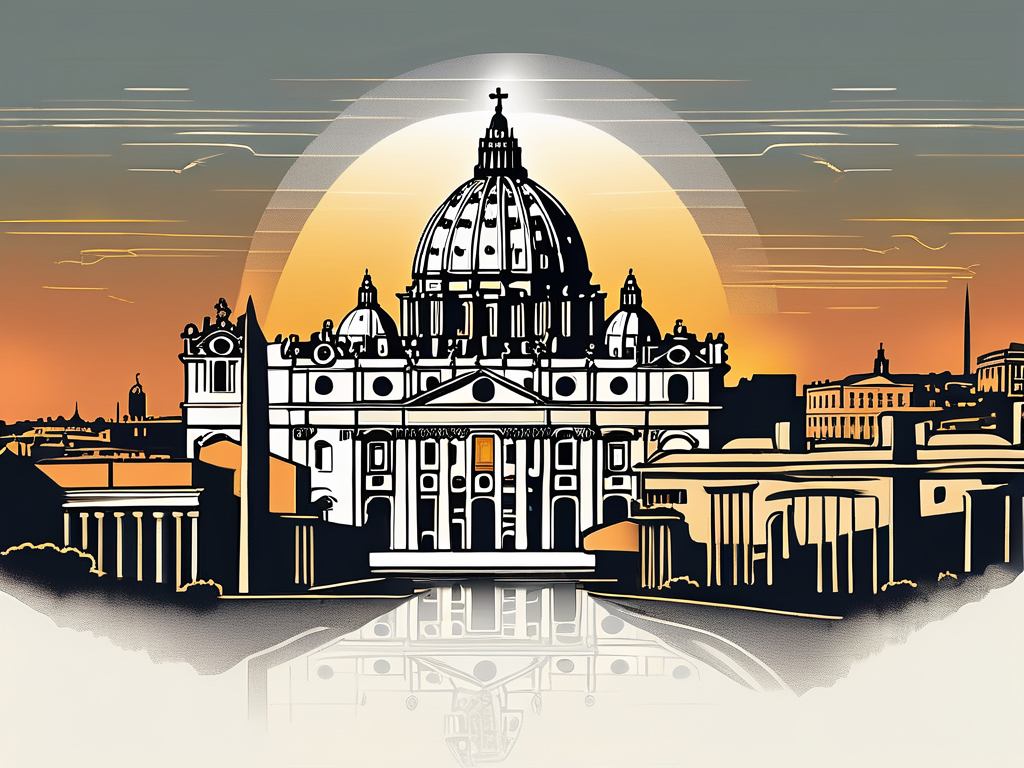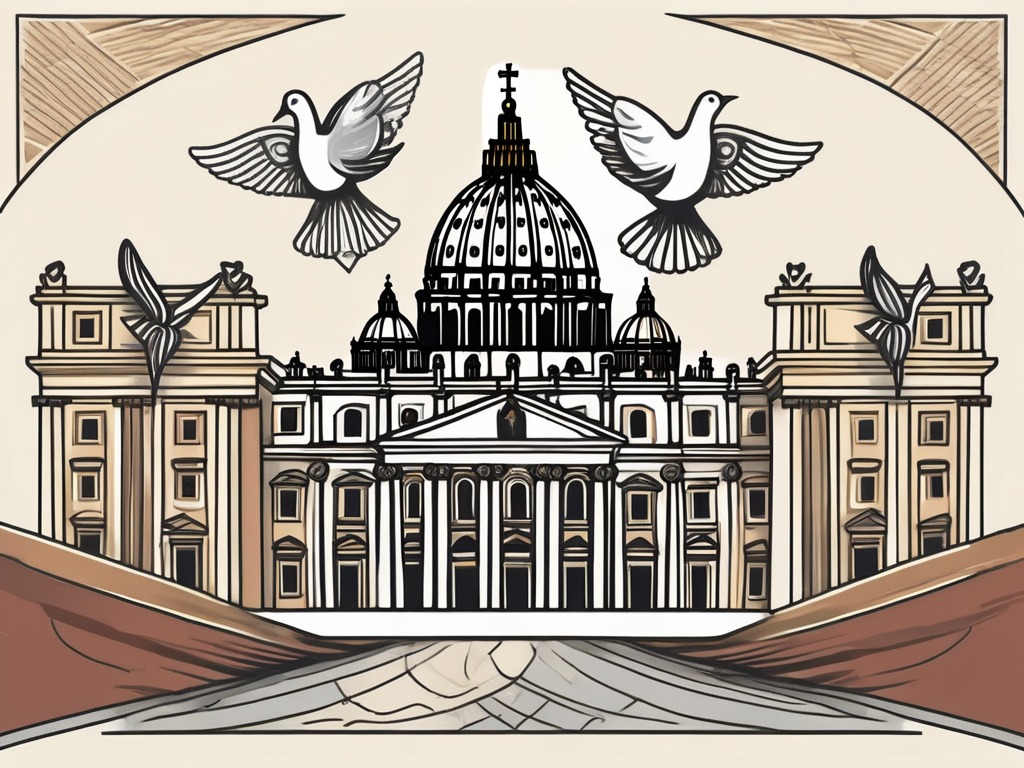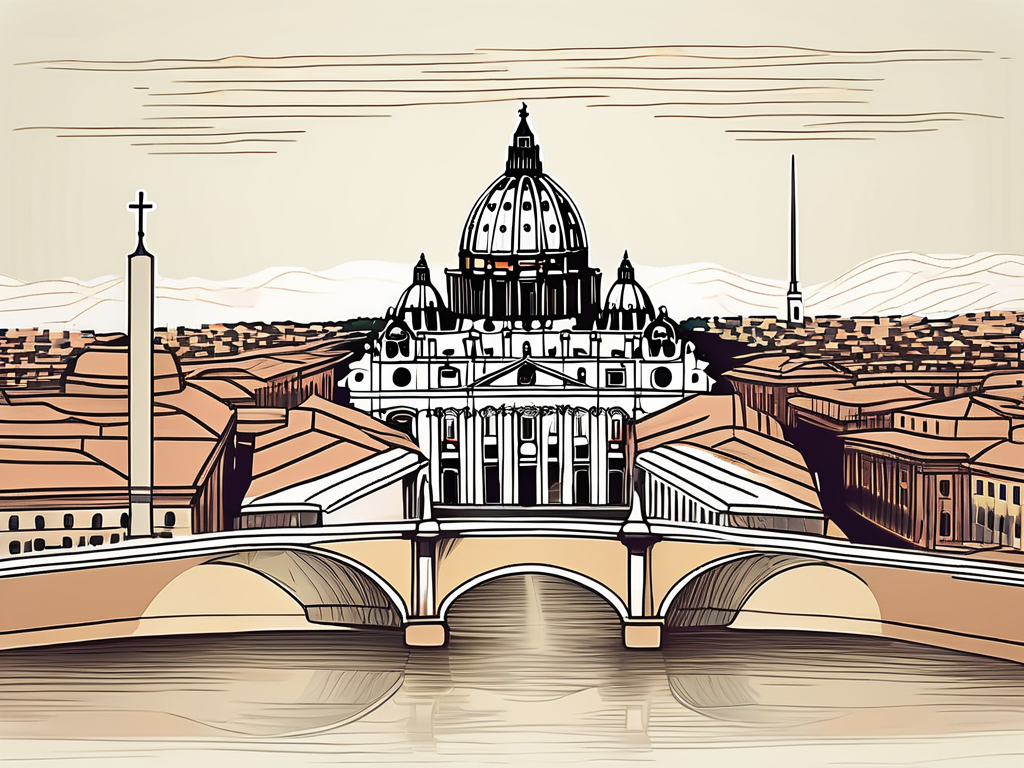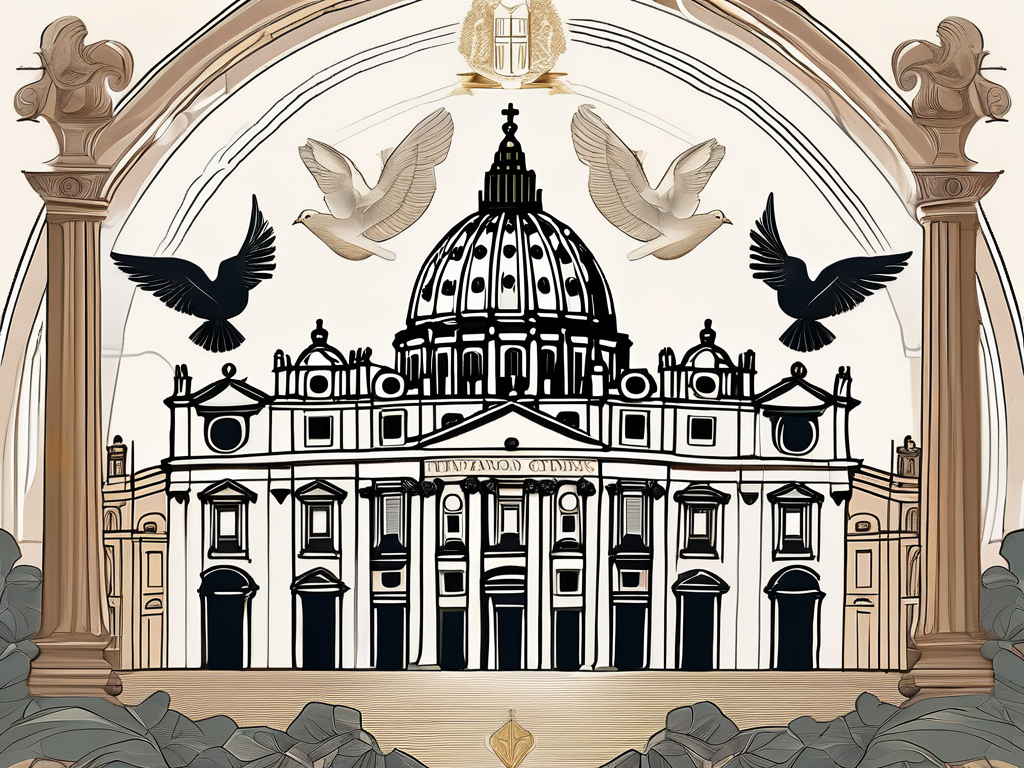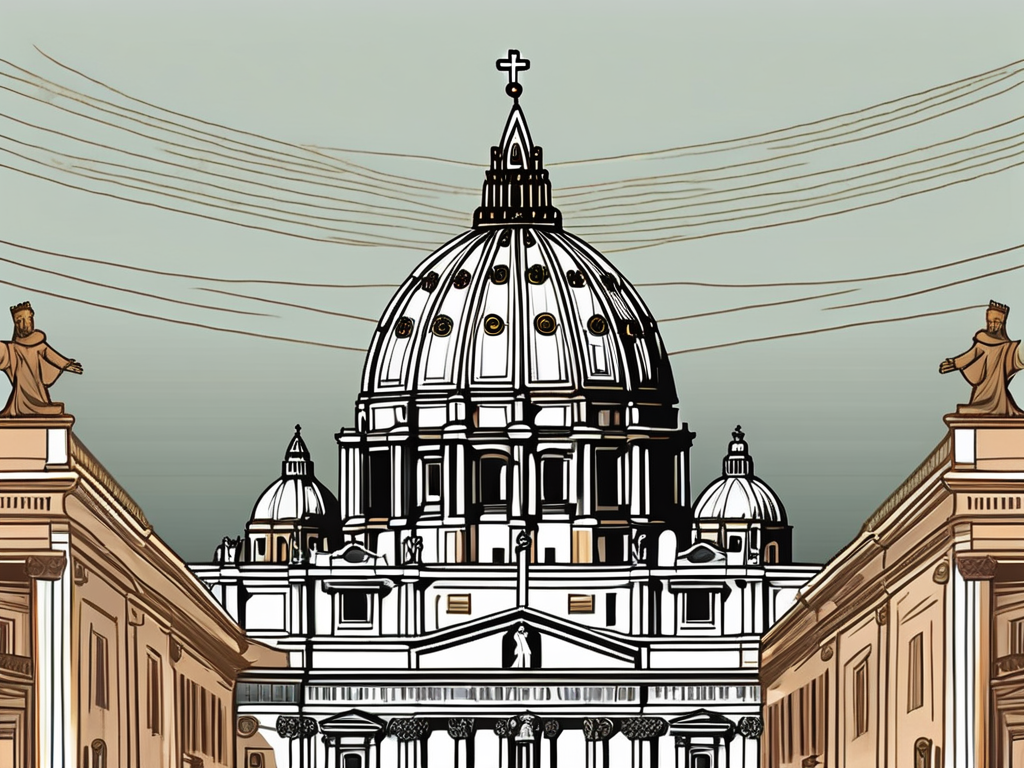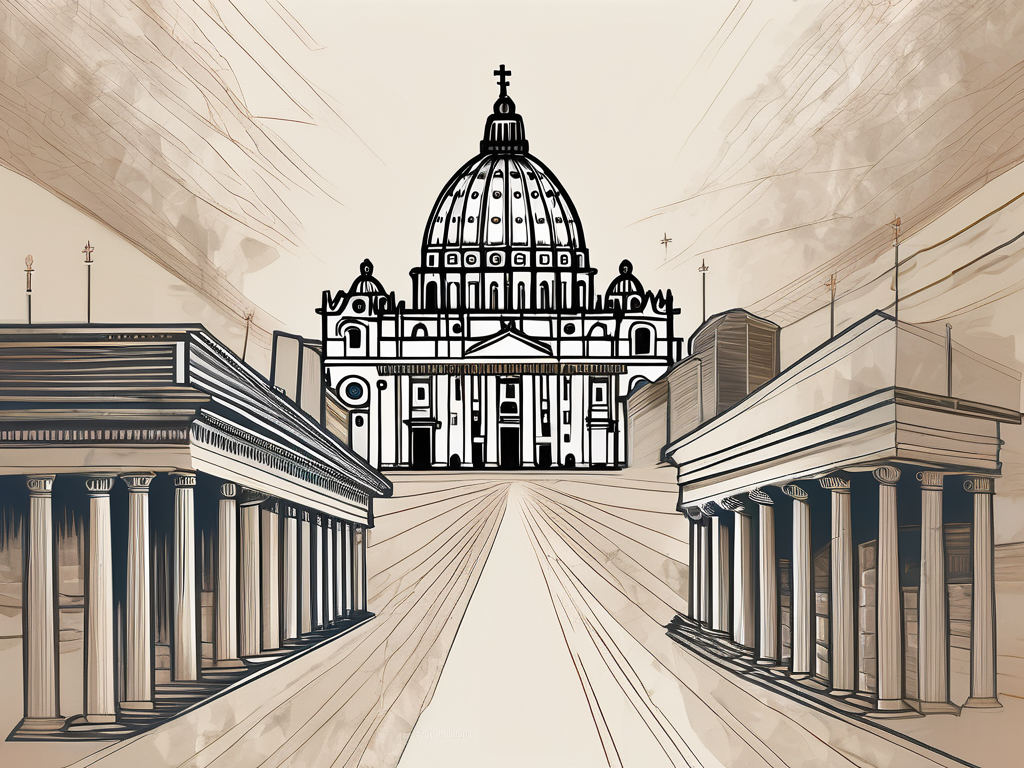Pope Fabian, also known as Saint Fabian, was a prominent figure in the early history of the Catholic Church. His life and papacy left a lasting impact on the Church, both in terms of administrative reforms and theological contributions. In this article, we will explore the fascinating story of Pope Fabian, from his early life to his enduring legacy.
Early Life and Ascension to Papacy
Born into a humble family, Fabian grew up in Rome during a time of great change and turmoil. His childhood was marked by strong religious influences, as his parents instilled in him a deep faith and a genuine love for the Church.
As a young man, Fabian’s journey led him to the city of Rome, where he became involved in various religious communities and organizations. It was his unwavering dedication to the Church that caught the attention of the clergy, ultimately leading to his ascension to the papacy.
Childhood and Early Influences
Fabian’s upbringing played a crucial role in shaping his character and values. He was taught the importance of compassion, humility, and service to others from a young age. His parents, devout followers of the Church, instilled in him a deep sense of spirituality and a strong moral compass.
As a child, Fabian witnessed firsthand the struggles and hardships faced by the less fortunate in his community. This experience ignited a fire within him to make a difference and help those in need. He actively participated in charitable activities, dedicating his time and resources to alleviate the suffering of others.
His parents also encouraged his pursuit of knowledge and education. Fabian was a diligent student, eager to learn about theology, philosophy, and the teachings of the Church. His thirst for knowledge would serve him well in his later years as he navigated the complexities of the papacy.
Journey to the Papacy
After devoting years to serving the Church and demonstrating his leadership skills, Fabian was unexpectedly chosen as the Bishop of Rome. The news was met with surprise and admiration as the humble man from Rome was catapulted into the position of Pope.
During his journey to the papacy, Fabian faced numerous challenges and obstacles. He encountered opposition from those who doubted his abilities and questioned his suitability for the role. However, his unwavering faith and steadfast determination propelled him forward.
Fabian’s ascension to the papacy marked a significant turning point in his life. As Pope, he embraced his responsibilities with great humility and a deep sense of purpose. He dedicated himself to the spiritual well-being of the Church and its followers, tirelessly working to strengthen the faith and promote unity among believers.
Throughout his papacy, Fabian implemented various reforms and initiatives aimed at improving the lives of the faithful. He emphasized the importance of education, establishing schools and promoting the study of theology and scripture. He also focused on social justice, advocating for the fair treatment of the marginalized and oppressed.
Under Fabian’s leadership, the Church experienced a period of growth and renewal. His compassionate nature and genuine concern for the well-being of others endeared him to the people, making him a beloved figure within the Church and beyond.
Pope Fabian’s Reign
During his time as Pope, Fabian faced numerous challenges and controversies. However, his unwavering faith and sound judgment allowed him to navigate these obstacles with grace and wisdom.
One of the key decisions made by Pope Fabian was his focus on administrative reforms within the Church. Recognizing the need for a more organized and efficient clergy, he implemented various measures to improve the structure and functioning of the Church. Under his leadership, the clergy underwent rigorous training and education, ensuring that they were well-equipped to carry out their duties and responsibilities. Pope Fabian’s emphasis on administrative reforms laid the foundation for a more effective and cohesive Church.
In addition to his administrative reforms, Pope Fabian also took significant actions to strengthen the Church’s influence and reach. He actively engaged with other religious leaders and political figures, fostering positive relationships and promoting interfaith dialogue. His efforts to build bridges between different communities not only enhanced the Church’s reputation but also contributed to a more harmonious society.
Key Decisions and Actions
One of Fabian’s most significant contributions was his focus on administrative reforms within the Church. He implemented various measures to improve the organization and efficiency of the clergy, ensuring that the Church could effectively carry out its mission.
Another key decision made by Pope Fabian was his commitment to promoting education and intellectual growth within the Church. Recognizing the importance of knowledge and learning, he established schools and libraries, providing opportunities for clergy and laypeople alike to expand their understanding of theology, philosophy, and other disciplines. This emphasis on education not only enriched the intellectual life of the Church but also empowered individuals to engage in critical thinking and contribute meaningfully to society.
Furthermore, Pope Fabian’s reign was marked by his efforts to combat heresy and preserve the integrity of Church teachings. He convened synods and councils to address theological disputes and clarify doctrinal matters. Through these gatherings, Pope Fabian ensured that the Church remained united in its beliefs and teachings, safeguarding its spiritual authority and guiding the faithful towards a deeper understanding of their faith.
Challenges and Controversies
Like many popes before and after him, Fabian faced his fair share of challenges and controversies. Despite the opposition he encountered, he remained steadfast in his commitment to the Church and its teachings.
One of the major challenges Pope Fabian faced was the rise of schismatic movements within the Church. These groups, fueled by differing interpretations of religious doctrines, threatened to divide the faithful and weaken the Church’s unity. However, Pope Fabian’s strong leadership and unwavering faith allowed him to address these challenges head-on. Through his teachings and pastoral guidance, he sought to reconcile the conflicting factions and restore harmony within the Church.
Additionally, Pope Fabian faced external pressures and threats to the Church’s authority. He had to navigate delicate political situations and maintain diplomatic relations with various rulers and empires. His ability to navigate these complex dynamics while upholding the Church’s principles and values demonstrated his astute diplomatic skills and unwavering commitment to the Church’s mission.
Contributions to the Church
Beyond his administrative reforms, Pope Fabian made notable theological contributions that continue to impact the Church to this day.
Administrative Reforms
Fabian’s reforms focused on enhancing the structure and organization of the Church, improving its ability to fulfill its mission. He implemented guidelines for the selection and training of clergy, establishing a strong foundation for future generations.
Under Fabian’s leadership, the Church saw significant advancements in its administrative practices. He introduced standardized procedures for the appointment of bishops, ensuring that qualified and capable individuals were chosen to lead dioceses. This approach not only strengthened the hierarchy of the Church but also fostered a sense of unity and cohesion among the clergy.
Furthermore, Pope Fabian recognized the importance of education and intellectual development within the Church. He established seminaries and schools to provide comprehensive training for future priests, equipping them with the knowledge and skills necessary to effectively serve their communities. These educational institutions became centers of learning and scholarship, nurturing a generation of clergy who were well-versed in theology, philosophy, and pastoral care.
Theological Contributions
In addition to his administrative reforms, Fabian’s papacy was characterized by his profound theological insights. His teachings and writings enriched the Church’s understanding of key doctrines and helped shape the theological discourse of the time.
Pope Fabian’s theological contributions were particularly influential in the areas of Christology and ecclesiology. He emphasized the divinity of Jesus Christ and the significance of his redemptive work, deepening the Church’s understanding of the central mysteries of the faith. Fabian’s theological writings also explored the nature of the Church as the mystical body of Christ, highlighting the importance of unity, love, and service within the Christian community.
Moreover, Fabian’s theological thought extended to the relationship between the Church and the state. He advocated for the autonomy of the Church in matters of faith and morals, while also recognizing the importance of collaboration between religious and secular authorities for the well-being of society. His teachings laid the groundwork for the Church’s ongoing engagement with political and social issues, emphasizing the ethical responsibilities of both the Church and the state.
Throughout his papacy, Pope Fabian’s theological contributions were widely respected and admired. His writings were studied and debated by theologians and scholars, shaping the intellectual landscape of the Church during his time and leaving a lasting impact on subsequent generations of believers.
Death and Canonization
Tragically, Pope Fabian’s papacy was cut short by his untimely death. However, the circumstances surrounding his passing only served to solidify his reputation as a holy and revered figure.
Circumstances of Death
Fabian’s death came during a time of intense persecution against Christians. He was martyred for his unwavering faith, becoming a symbol of courage and devotion.
Path to Sainthood
In recognition of his sacrifice and contributions to the Church, Pope Fabian was eventually canonized as a saint. His legacy now lives on, inspiring and guiding the faithful as they navigate their own spiritual journeys.
Pope Fabian’s Legacy
Pope Fabian’s impact on the Catholic Church cannot be overstated. His influence reverberated through the centuries, shaping the future of the Church and defining the role of the papacy.
Impact on the Catholic Church
Through his administrative reforms and theological contributions, Fabian laid the groundwork for a strong and unified Church. His legacy serves as a reminder of the importance of effective leadership and the power of faith in overcoming adversity.
Influence on Future Popes and Church Policy
Pope Fabian’s example continues to inspire future popes, who look to his legacy for guidance. His emphasis on humility, service, and the pursuit of spiritual truth remains relevant in the modern Church, informing key decisions and shaping Church policy.
In conclusion, the life and legacy of Pope Fabian are profound and far-reaching. From his humble beginnings to his enduring impact on the Catholic Church, his story serves as a testament to the transformative power of faith and the ability of individuals to make a lasting difference.
